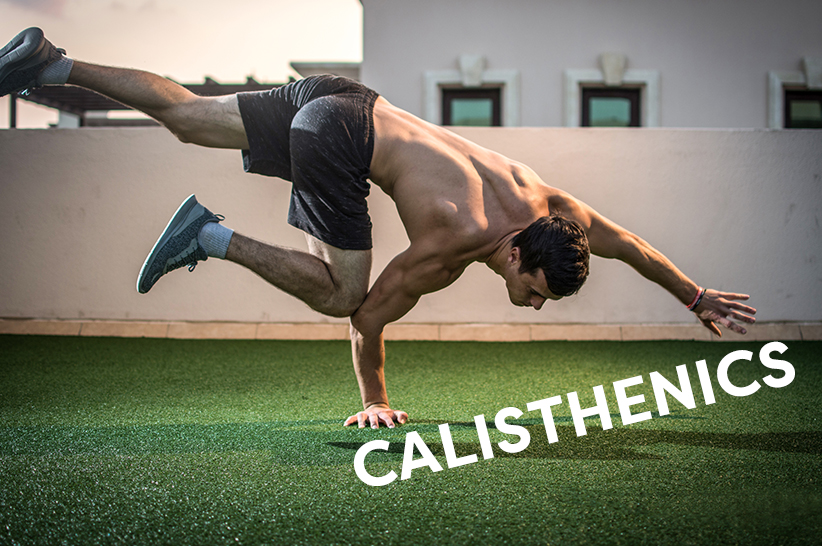Calisthenics. It’s the name given to workouts that involve no weights and minimal equipment. Basically, all you’ll be using is your bodyweight.
A significant benefit of calisthenics exercises is that you can do them regardless of the place and time.
Today’s article will help you gain a better understanding of calisthenics – its benefits, how it complements the keto diet, and 6 exercises to get started.
What Are Calisthenics?
As previously mentioned, calisthenics refers to exercises that involve focused resistance against your body weight. In addition, they engage both fast and slow twitch muscles. Basic and specialized movements include bending, swinging, jumping, push-ups and sit-ups 1. The other term for calisthenics is bodyweight workouts.
When it comes to equipment, most people assume that they don’t need one. The truth is that there’s a wide selection of available equipment ranging from rings to resistance bands to push-up bars.
Did you know that calisthenics started in Greece? The terms kalos and sthenos are actually Greek. Kalos means “beauty” and sthenos means “strength.” Spartan warriors used the exercise as part of their fitness regimen to boost their athletic performance.
Fast forward to the present day, calisthenics is being included in military training, taught in physical education classes, and practiced by fitness enthusiasts.
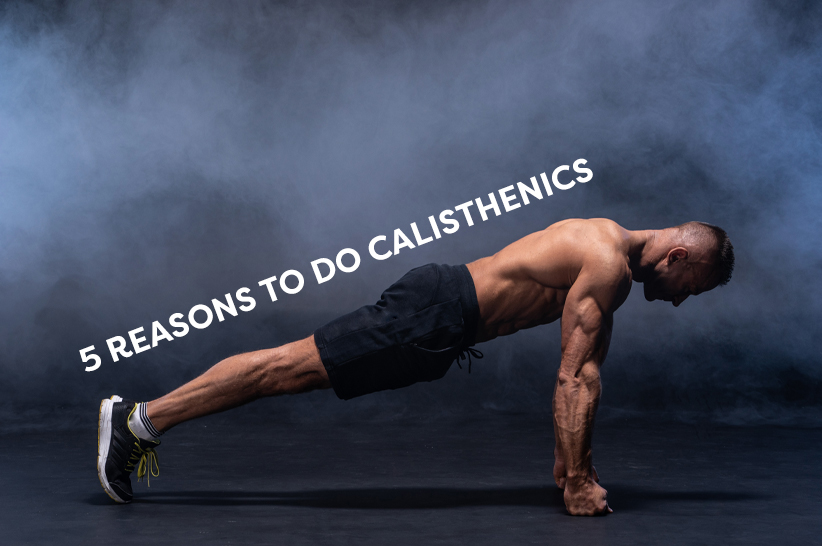
Benefits of Calisthenics
What are the best reasons to do calisthenics? Learn its benefits below:
1. Convenient and cheaper
It’s no secret that people nowadays prefer the most convenient route to accomplish their goals. When it comes to fitness, calisthenics appeals to the majority – especially to those who live far from gyms and have 9-5 jobs.
How so? Calisthenics removes the hassle of commuting and waiting for your turn to use a piece of equipment. You won’t have to worry about expensive gym memberships. Since you’re more likely workout consistently, results will come faster 2.
2. Speeds up weight loss
Calisthenics movements that target several muscles increase your heart rate and expend more energy, leading to weight loss. When doing calisthenics, also keep in mind the general rule that you need to achieve a negative energy balance to lose weight 3. Meaning, you should burn more calories than you consume. You do this by engaging in longer, more intense workouts, and lowering your carb intake. In addition, performing calisthenics in intervals can speed up weight loss. Interval training has been shown to improve basal metabolic activity and accelerate weight loss.
3. Increases flexibility
If you sit most of the time, it’s likely that you have tight muscles. Ever wonder why you find it difficult to perform simple movements or experience back pain? That’s because you lack flexibility. Being flexible allows you to move easily. Most importantly, it keeps you from getting injured 4. Calisthenics increases the flexibility of your hamstrings, shoulders, core, and other muscles. By incorporating this dynamic stretching, you can improve your muscular strength, while improving flexibility. This is the aspect of modern yoga that helps people develop flexibility.
4. Enhances muscle tone
By using your own body as a form of resistance, you can increase strength and tone. This is one of the reasons why people who want a leaner, more athletic look choose calisthenics. The resistance of your muscles against gravity along with high repetitions will improve the athletic look of adherents. Men won’t just get big muscles, but also well-defined muscles. Women, on the other hand, will appear lean and toned instead of skinny.
5. Can be done by everyone
Whether you’re a beginner or pro, calisthenics is for you. A study showed that calisthenics could be included in comprehensive treatment programs for patients with chronic obstructive pulmonary disease (COPD) 5.
The key is to choose workouts based on your current fitness level. You don’t have to engage in ring dips or a planche immediately. Jumping jacks or squats are already great exercises to get started with. Once you master easy workouts, you can try more complex ones. In addition, you are less likely to over exert yourself since the maximum weight that you can lift is your body weight against gravity.
Calisthenics vs Weights
What is better, calisthenics or weight lifting? Remember that there’s no such thing as a perfect workout because every person responds differently to a type of exercise. Also, it’s essential to choose a workout routine depending on your end goals.
Fat loss
If your goal is to lose weight, calisthenics is the way to go. Calisthenics helps with fat loss in many ways.
One, you can always switch up your routine, thanks to the wide variety of moves. Doing something different from time to time prevents a weight loss plateau. Another reason why calisthenics works better is that it engages a variety of muscles at once. Compare it with weight lifting that focuses on individual muscles.
Building muscles
While calisthenics and weight lifting improve muscular endurance, weight lifting increases your muscle mass faster. What happens when you rely on calisthenics is that you’re limited to your own body weight. Eventually, you’re going to have to use dumbbells, barbells, or weighted vests to see new results. In order to improve the hypertrophy (growth) of muscles you must increasingly stress them to enlarge the muscle fibers.
Equipment
Some people get turned off by the thought of having to deal with gym equipment. Calisthenics offers everyone an opportunity to exercise at home or outdoors without carrying anything. If you ever feel like trying out equipment to perform certain moves, you can also do that in the future.
With weight lifting, you always need to use weights. Basically, you cannot start a workout without them. You’ll be obligated to sign-up for a gym membership, spend money on equipment, and bring dumbbells with you when traveling. That doesn’t sound so convenient at all.
Is Keto Diet Good for Calisthenics?
The ketogenic diet is a high-fat, low-carbohydrate, and moderate-protein diet. It trains your body to use up fat for energy in the form of ketones. As your body switches from being a carb burner to a fat burner, a lot of good things happen. These include increased metabolism, better muscle mass, decreased hunger, and improved heart health [6].
Keto and calisthenics make a great combination. Imagine reaping all the benefits they offer that improve your quality of life. While on a ketogenic diet, a vigorous and steady calisthenics program will help to burn fat and improve weight loss.
Exercise and a well-planned ketogenic diet go hand-in-hand. Eating nutrient-dense keto foods fuels your body for more effective workouts. Examples of healthy keto-friendly foods are avocados and whole eggs. They boost your calisthenics workout session by increasing your focus, mood, and energy.
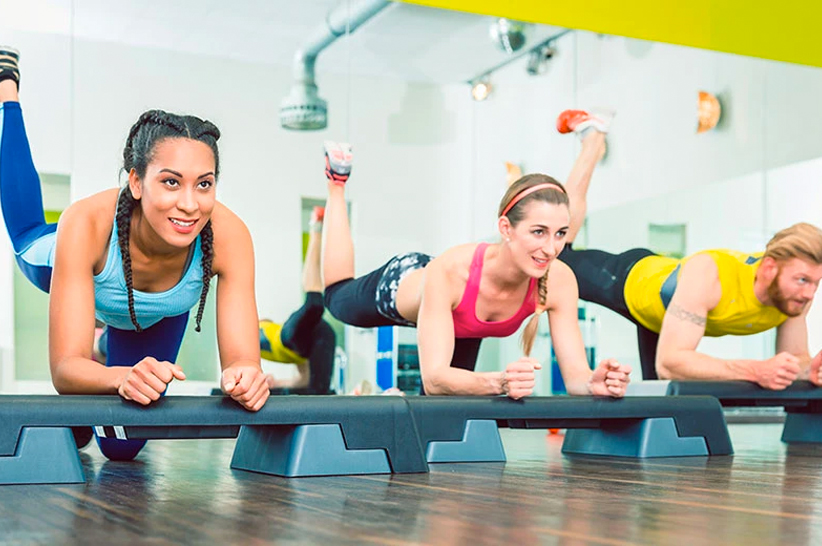
How to Start Calisthenics
If you’ve never done calisthenics before, here are three tips you should keep in mind:
1. Begin with the basics.
Focusing on the basics allows you to build a strong calisthenics foundation. If you master basic bodyweight exercises, for instance, push-ups and squats, it’ll be easier to progress to more difficult variations.
At the start of your journey, you can feel very excited to the point where you try different moves at once without mastering one. Too often than not, people assume that a calisthenic exercise that’s categorized as “basic” is easy to perform.
Let’s take the plank exercise as an example. To do a perfect plank for 120 seconds, you have to maintain a straight back, squeeze your glutes, engage your core, and remember to breathe. During your first few attempts, you’re probably going to quiver!
2. Use proper form.
To increase the quality of your calisthenics workout, proper form is essential. Improper form often leads to injuries. Also, it’ll make it harder for you to breathe properly.
It pays to learn all the details of a workout – for example, the position of your elbows and neck, your posture, and where you should land. In case you’re not sure whether you’re performing a move correctly, don’t be afraid to ask for help.
3. Stop comparing yourself to others.
Always keep in mind that your fitness journey is unique. Often, you’ll feel like you’re the only one struggling while everybody else is doing a great job. Everyone has their share of struggles which is why there’s no point in comparing your progress with someone else’s. Remember, comparison is the enemy of happiness.
You start doing calisthenics differently than another person based on factors like your age, former training, and current health and fitness level. What’s important is that you enjoy the process and always strive to improve.
Calisthenic Exercises for Beginners
1. Jumping Jacks
Also known as the side-straddle hop, the jumping jacks exercise works your whole body. It’s good for warming up before you do cardio or weight lifting. It can also be performed along with other calisthenics exercises. If you’re wondering what the jumping jacks exercise can do, it builds your strength and agility.
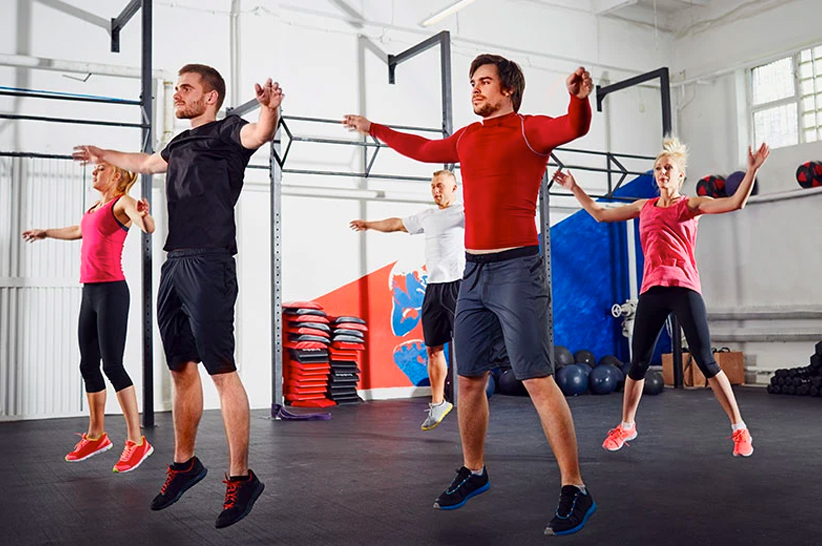
| Equipement | None |
| Reps | At least 30 reps |
| Sets | 5 sets |
| Frequency | 3-4 times a week |
| How to do it |
|
| Tips |
|
2. Squats
Squats activate your lower body. They strengthen your legs, glutes, and joints. Since the exercise improves the range of motion in your ankle and hip areas, you’re able to balance better.
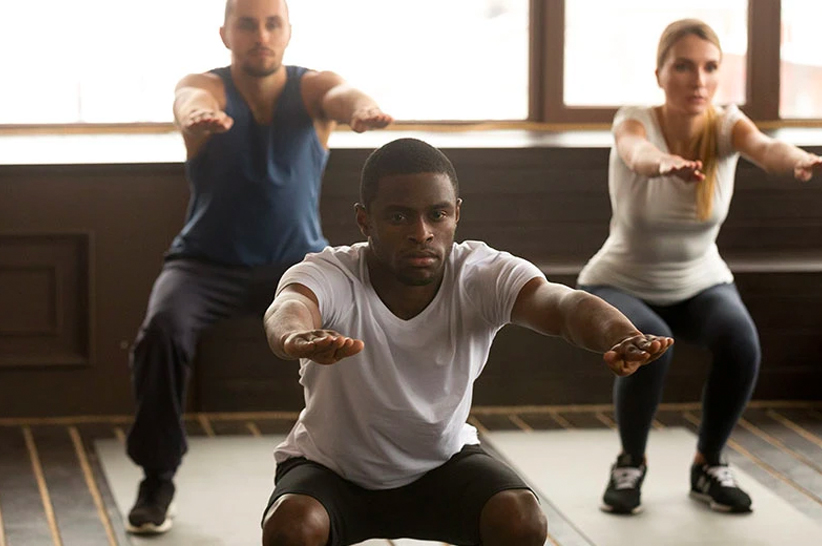
| Equipement | None |
| Reps | 20 reps |
| Sets | 3 sets |
| Frequency | 3-4 times a week |
| How to do it |
|
| Tips |
|
3. Pull-ups
Pull-ups recruit several muscles in your back and arms all at once. Total beginners may find that they need more time and practice before they can master the workout. It will help to have someone assist you. Also, increase your repetitions to burn more calories. If pull-ups are too hard, you can have another person assist you in lifting up on the pull-up bar. This allows you some assistance with the activity, without having to utilize any equipment.
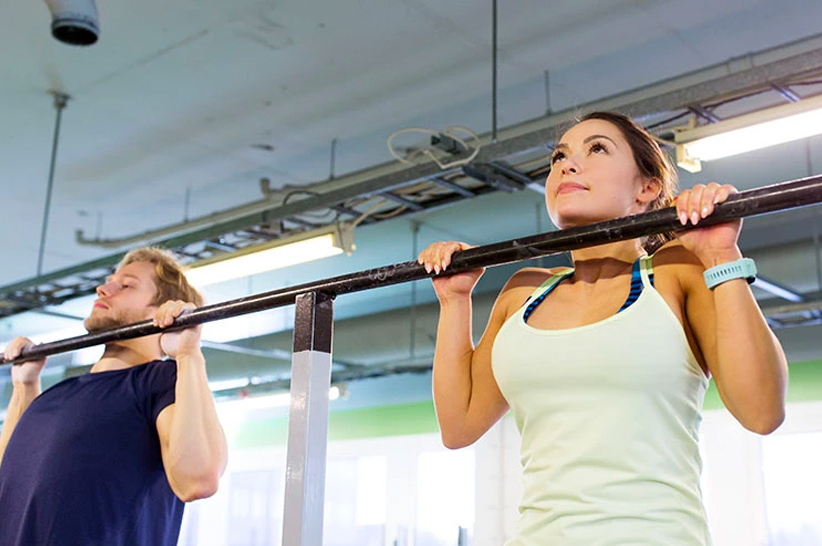
| Equipement | Pull-up bar |
| Reps | As many reps as you can do |
| Sets | 3 sets |
| Frequency | 3 times a week |
| How to do it |
|
| Tips |
|
Advanced Calisthenic Exercises
1. Handstand push-up
The handstand push-up is a powerful move that works the muscles of your upper body. It strengthens your triceps, shoulders, and chest. It also develops your balance. Even if you already know how to do a handstand, you won’t be able to perform a push-up unless you get your form right.
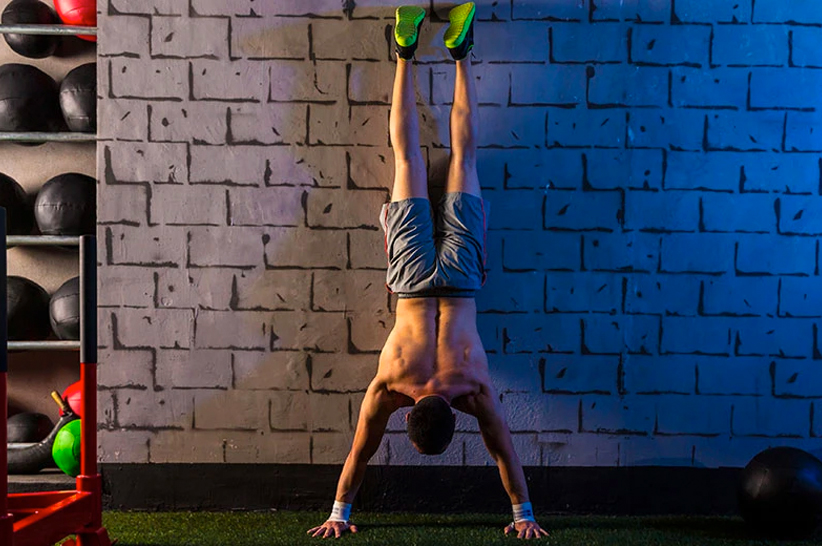
| Equipement | None |
| Reps | 15 reps per set |
| Sets | 3 sets |
| Frequency | 3 times a week |
| How to do it |
|
| Tips |
|
2. Full planche push-ups
Full planche push-ups require you to keep your body parallel to and off the ground while you do push-ups. This exercise demands control, strength, and balance on your part. If you have an existing injury or are new to hand balancing, never attempt planche push-ups. Also, a background in gymnastics is essential. If the planche push-ups are too strong, put your knees down and then progress to a regular push-up. The final step in this progression would be a full planche push-up.
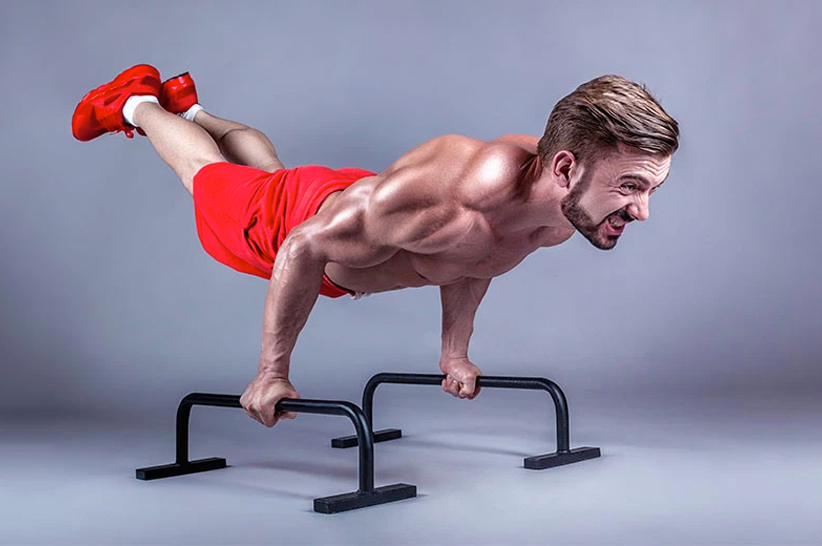
| Equipement | None/push up bars/parallettes |
| Reps | 5 reps or as many reps as you can |
| Sets | 3 sets |
| Frequency | 3 times a week |
| How to do it |
|
| Tips |
|
3. L-sits
If you want to take your arm and core strength to the next level, the L-sit workout is for you. Your entire body should maintain an L-shape. Holding the position even for just a few seconds offers a ton of benefits. One benefit is that the L-sit allows you to progress to highly advanced calisthenics moves such as the planches.
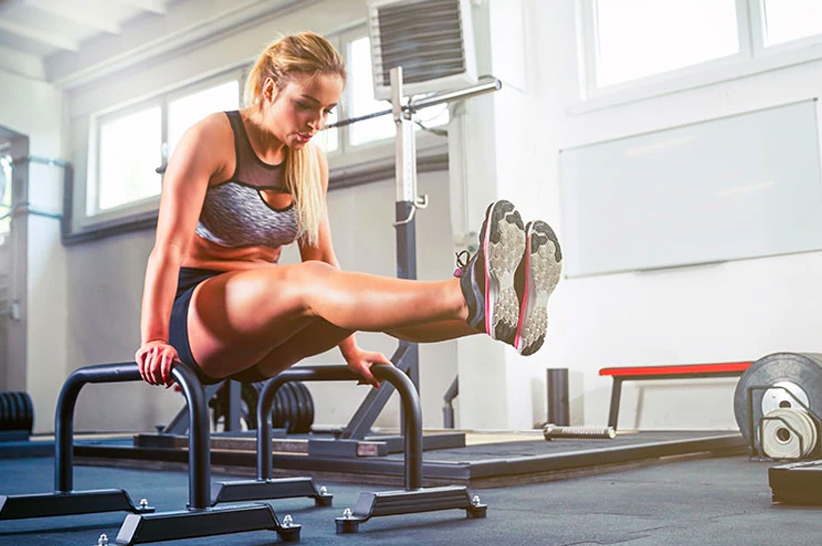
| Equipement | None/gymnastics rings/parallettes |
| Reps | 10 seconds or as long as you can hold the position |
| Sets | 3 sets |
| Frequency | 3 times a week |
| How to do it |
|
| Tips |
|
Conclusion
Calisthenics is an amazing form of exercise in that it offers convenience, involves zero to minimal equipment, and requires you to use your bodyweight. Anyone can start calisthenics right away. If you already follow the ketogenic diet, adding calisthenics to your fitness routine speeds up results.
Takeaways
- Calisthenics is for anyone who wants weight loss, affordable and convenient workouts, better flexibility, and improved muscle tone.
- Calisthenics training is ideal for fat loss while weight lifting is the better choice for building muscle faster.
- The ketogenic diet supports your calisthenics workout routine. Be sure to choose whole low-carb, high-fat foods.
- Focus on proper form, start with basic exercises, and stop competing with other people.
- Beginner workouts include the jumping jacks, squats, and pull-ups.
- Advanced workouts include the handstand push-ups, full planche push-ups, and L-sits.



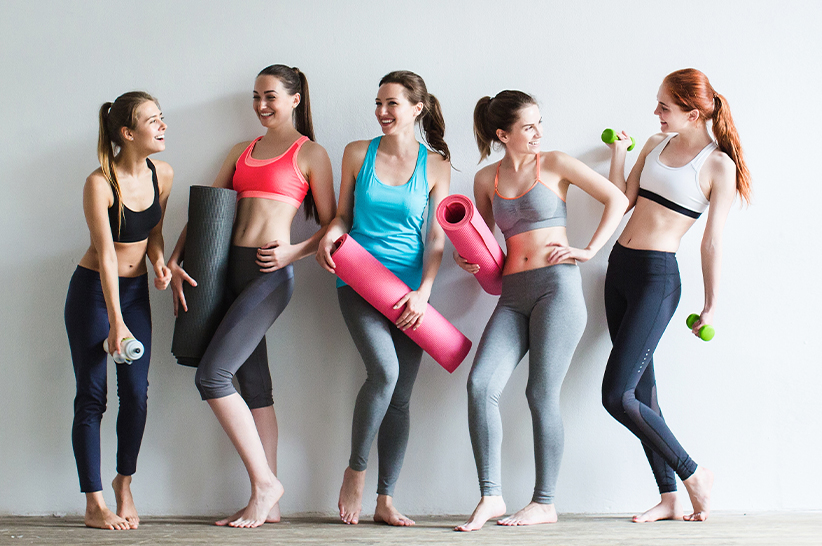
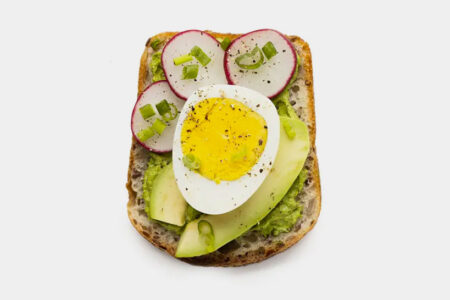
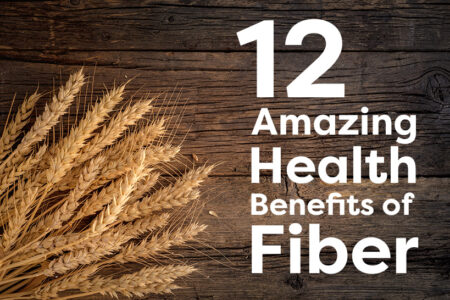




![Juicing for Weight Loss: Everything You Need to Know [Plus Recipes]](/wp-content/uploads/2019/08/Juicing-for-Weight-featured-image.jpg)






